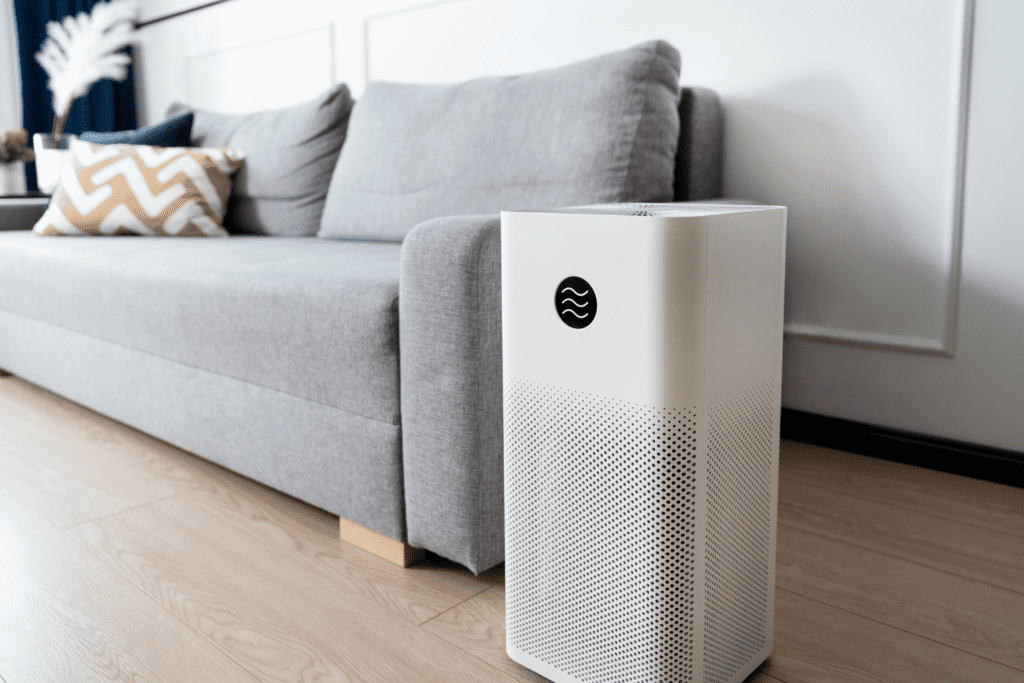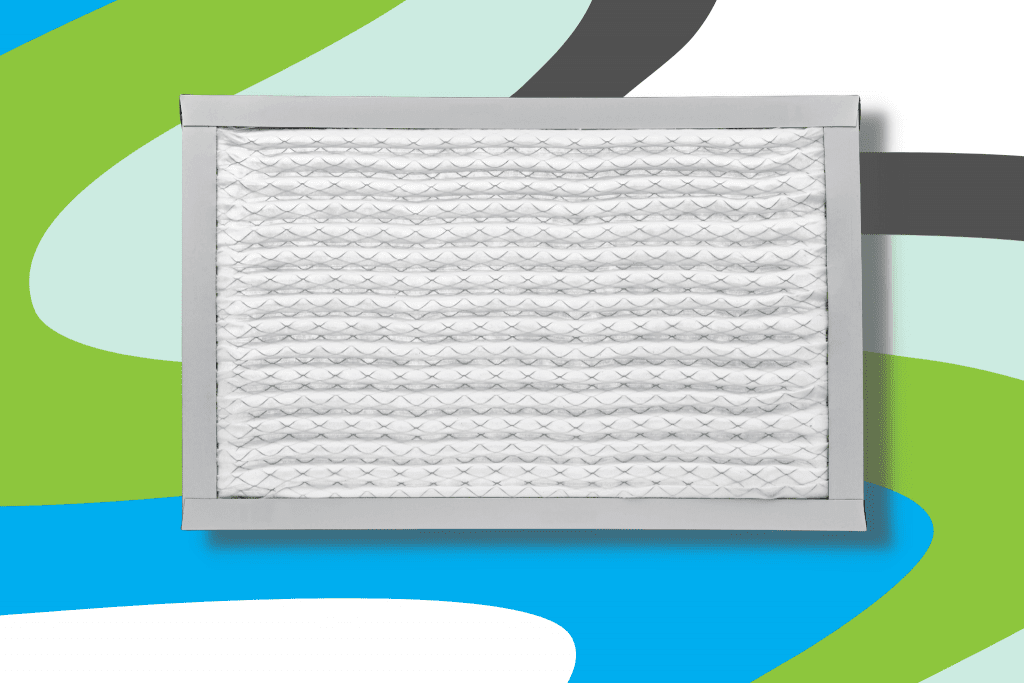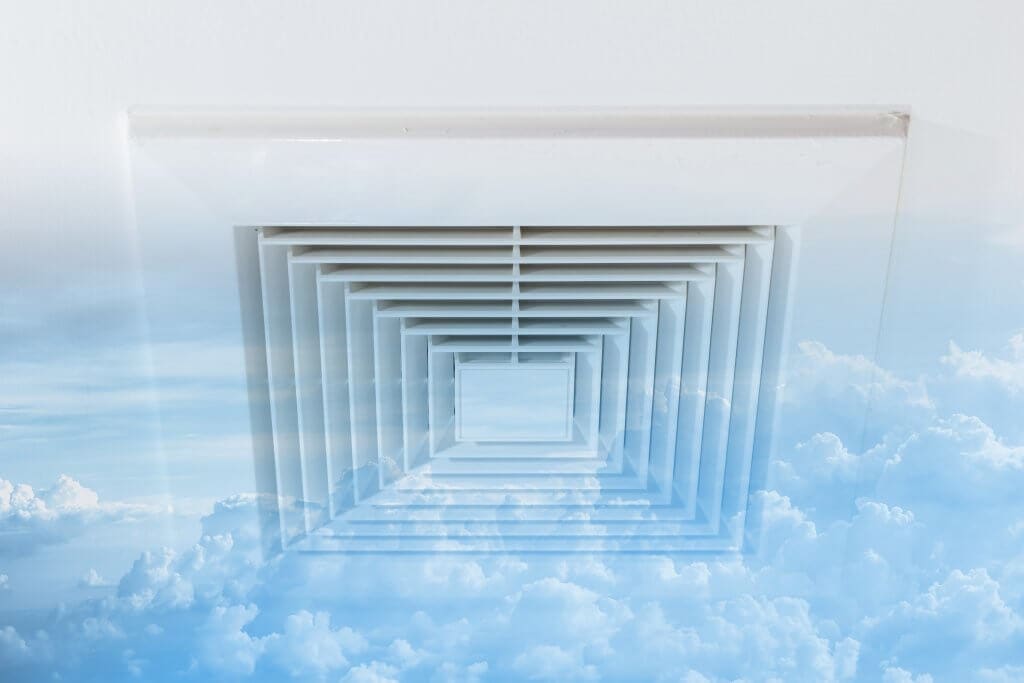If choosing the right air filter for your HVAC system is confusing, you’re not alone! From the right size to the best MERV rating, making sure you have the best air quality in your home or office can be a challenging process.
Asthma and allergy sufferers are particularly sensitive to the air quality around them. Having the wrong air filter may mean you’re breathing in more dust or allergens, which can trigger asthmatic and allergic episodes. With correct MERV rating knowledge and the right HVAC filter choice, your air filtration system will help you breathe cleaner air in your home or workplace.
So, what exactly is a MERV rating? And how does it make a difference in breathing easier?
What Is Air Filtration?
Breathing is automatic. For most of us, this means we often overlook what actually happens in the process. Even during a single breath, the air you breathe contains particles of dust, dirt, allergens and other microscopic contaminants that easily enter your lungs. Depending on where you live and work, the outdoor air entering your lungs can be a nightmare combination of harmful particles. Most people are aware of outdoor air pollution, and what hazy weather really means. However, this is true for both air outdoors and indoors.
While one can’t filter outdoor air, you can filter indoor air! The air in your home is the one place you truly have control over, thanks to filtration.
Air filtration is the process of removing harmful particles from the air to create cleaner, less harmful air. Filters quite literally are able to capture harmful particles and keep them from recirculating throughout your space. This is beneficial for anyone spending time indoors. If you struggle with allergies and asthma, it’s especially crucial to live and work in environments that provide excellent air filtration to help you breathe better throughout the day.
What Is MERV?
MERV is simply an acronym. It stands for minimum efficiency reporting value. A filter’s MERV rating is based on how many or how few particles a filter captures and removes from the air. Thus, the rating is important when choosing the best air filter for your HVAC system and health needs. In general:
- Lower MERV Ratings: Trap fewer particles … thus more particles are recirculated in the air
- Higher MERV Ratings: Trap more particles (can capture and filter smaller particles and more effectively capture larger particles!) … thus fewer pollutants circulating indoors
This means choosing a filter with a higher MERV rating results in cleaner air as the filter traps a broader range of particles, both large and small. High-efficiency MERV filters capture a multitude of particles, such as: carpet fibers, pet dander, pollen, dust mites, mold spores, bacteria and tobacco smoke.
What Do the Ratings Mean?
MERV ratings are distributed on a scale from 1-20. However, most residential and commercial buildings don’t require air filters above a MERV 16 rating.
The scale is based on the micron size of particles a filter removes and the efficiency with which it captures contaminants passing through your HVAC system. However, microns might not be the easiest way for most to understand precisely which particles your filter traps and keeps out of your breathable air!
In our best layman’s terms, here’s an easy breakdown of the MERV scale, in terms of how many or how few contaminants are trapped in a filter:
| MERV Ratings 1-4 | These filters have a less than 20% efficiency at capturing particles 3.0-10.0 microns in size. A filter with these ratings are considered “basic” filters which help keep your system clean, but will not significantly improve the air quality in your home or office. These filters can trap dust mites, bugs and larger household debris. |
| MERV Ratings 5-8 | These filters generally capture particles between 3.0-10.0 microns. With this range of filters, you begin to significantly improve the quality of the air circulating through the HVAC system. In addition to larger particles, these filters also trap pet dander, mold and aerosol sprays. |
| MERV Ratings 9-12 | These filters capture particles as small as 1.0-3.0 microns in addition to large-sized particles. These filters also trap common pollutants. Superior residential air conditioners choose filters within this range. |
| MERV Ratings 13-16 | These filters capture particles as small as 0.3 microns. When using filters with the highest ratings, your HVAC system can trap sneeze droplets, smoke and most other sources of pollution. This range is considered high-efficiency air filtration. |
For asthma and allergy sufferers, MERV filters between 11-13 are normally recommended. These filters provide the best air purification to help ease symptoms of lung conditions or allergy flare-ups.
MERV 13 filters can trap and filter out airborne viruses and bacteria, something that is a high priority for most people today. It’s partially why this is considered the best filter for home use.
But what about MERV ratings 17-20? These filters, also known as HEPA filters, can capture virtually all particles. But most homes don’t require this level of purification. These filters can also be very expensive and require system retrofits to accommodate. You’ll find this level of filtration in designated clean rooms used for specific manufacturing and scientific needs.
What About Pricing and Replacement?
As the MERV rating increases, so does the price. However, depending on how often you need to change your filter and where you buy filters, choosing a higher MERV filter can improve your air quality without costing more.
In most cases, you should replace lower MERV filters every month. You might spend less on these filters, but you’ll need to change them far more often than higher-rated filters.
When choosing higher-rated filters you can generally replace them every 60-90 days. You might spend a little more on the purchase price of these filters, but you won’t need to change them nearly as often, with cleaner air overall.
Keep a Filter Schedule
It’s important to keep track of when your system needs new filters. A dirty filter can restrict airflow in your HVAC system. Also, clogged filters are ineffective at filtering particles and keeping your air clean. Neglecting to change your filters on a schedule can cause expensive damage to your system and worsen health issues.
It’s always important to keep an eye on your filters. If the filter is visibly dirty, even before the 90-day mark, you should change it. Never leave your system without a good filter or with a clogged filter.
Get Help Choosing Your Ideal MERV Rating
We know this is a lot of information on different ratings at once, and it can be confusing to choose the best air filter for your home or business. We’re happy to help guide you through the best MERV filter options for your residence or business.






